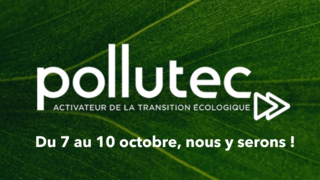PFAS: Everything you need to know about the new law in France and its impact
On 20 February 2025, the French National Assembly passed a landmark law on PFAS, aimed at drastically reducing their use in France. Nicknamed the ‘eternal pollutants’, PFASs (per- and polyfluoroalkylated substances) are a family of over 10,000 chemical compounds used in many everyday products for their non-stick, water-repellent and heat-resistant properties. They are found in food packaging, waterproof textiles, fire-fighting foams and certain cosmetics.
The PFAS Act in France: what restrictions and prohibitions apply?

While France is a pioneer in banning PFASs, the European Union and other countries such as Germany, the Netherlands and Denmark are also working on strict regulations. This new legislation, adopted after two and a half years of parliamentary debate, marks a turning point by introducing progressive bans and strict measures to limit industrial discharges of PFAS.
Which products are affected by the ban on PFAS?
- A ban on PFAS in certain products from 2026:
- Cosmetics
- Ski waxing products
- Clothing and footwear (including waterproofing)
- Food packaging materials containing PFAS
- Extension of the ban to other textile products in 2030, except for certain protective clothing (firefighters, professionals exposed to chemical risks, etc.).
- Tighter controls on water contamination: mandatory analysis of PFAS in drinking and bottled water
- Mapping of PFAS-emitting sites, updated annually
- An environmental tax on industrial polluters: a fee of €100 for every 100g of PFAS discharged into the environment.
- Obligation to progressively reduce aqueous discharges for certain PFAS, with total elimination targeted within 5 years.
Timetable for application of the PFAS Act in France
The ban will be phased in gradually:
- 2025: Adoption of the law and start of tighter controls on PFAS in water
- 2026: Ban on the marketing of certain products containing PFAS
- 2030: Extension of the ban to all textiles (excluding protective clothing)
This gradual approach gives manufacturers time to adapt their processes while protecting the public from the toxic effects of these substances.
PFAS: what impact for manufacturers and local authorities?
The adoption of this law implies major changes for companies involved in the use of PFAS. The sectors most affected are
- The textile and cosmetics industry, which will have to find alternatives to PFAS for waterproofing and stain resistance.
- Food packaging manufacturers, who will have to review their materials.
- Local authorities and water managers, who will have to step up their analyses and clean-up efforts.
To anticipate these regulatory changes, it is essential to identify the presence of PFAS in products and the environment.
WESSLING France | ALS, an expert laboratory for PFAS analysis
Faced with these new regulatory requirements, WESSLING France | ALS supports manufacturers and local authorities in the analysis and management of PFAS.
Our expertise :
- Detection of PFAS in water, air, soil, sediment and foodstuffs
- Assessment of industrial discharges and assistance with regulatory compliance
- Advice on adapting to new PFAS standards
Thanks to our state-of-the-art PFAS detection equipment and our know-how, we help our customers to control the risks associated with PFAS and to anticipate legislative changes.
Need an analysis or support? Contact our experts today!
Your dedicated contact:
- Frédéric Jeampierre
- +33 07 56 37 24 99
- frederic.jeampierre@wessling.fr

